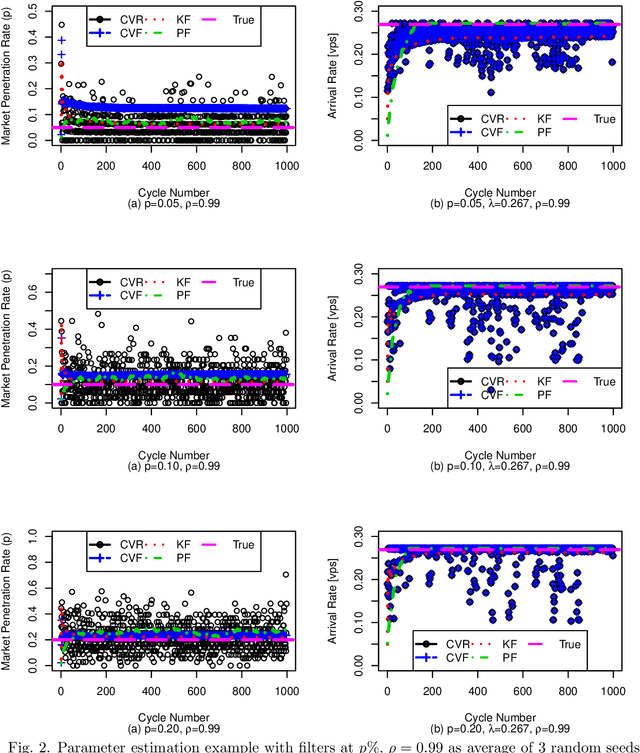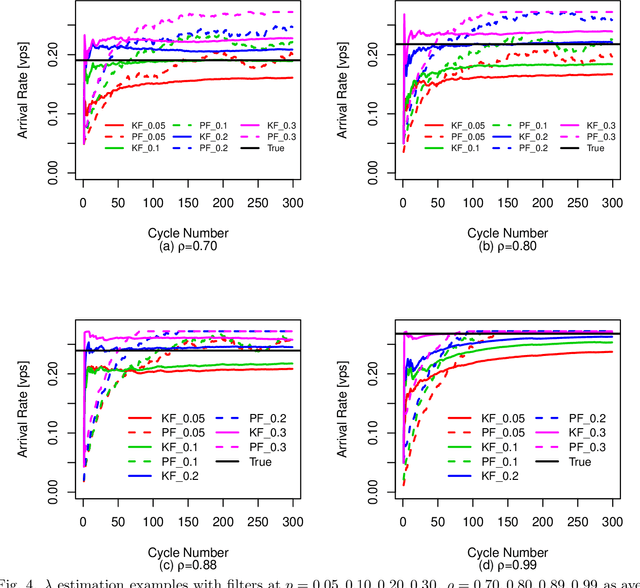Cycle-to-Cycle Queue Length Estimation from Connected Vehicles with Filtering on Primary Parameters
Paper and Code
Nov 18, 2020



Estimation models from connected vehicles often assume low level parameters such as arrival rates and market penetration rates as known or estimate them in real-time. At low market penetration rates, such parameter estimators produce large errors making estimated queue lengths inefficient for control or operations applications. In order to improve accuracy of low level parameter estimations, this study investigates the impact of connected vehicles information filtering on queue length estimation models. Filters are used as multilevel real-time estimators. Accuracy is tested against known arrival rate and market penetration rate scenarios using microsimulations. To understand the effectiveness for short-term or for dynamic processes, arrival rates, and market penetration rates are changed every 15 minutes. The results show that with Kalman and Particle filters, parameter estimators are able to find the true values within 15 minutes and meet and surpass the accuracy of known parameter scenarios especially for low market penetration rates. In addition, using last known estimated queue lengths when no connected vehicle is present performs better than inputting average estimated values. Moreover, the study shows that both filtering algorithms are suitable for real-time applications that require less than 0.1 second computational time.
 Add to Chrome
Add to Chrome Add to Firefox
Add to Firefox Add to Edge
Add to Edge